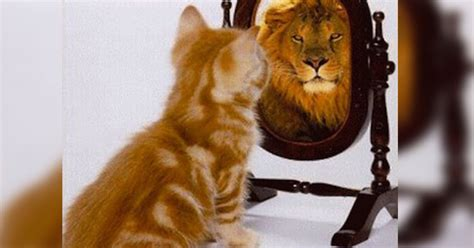Efecto Galatea vs Efecto Pigmalion / Galatea Effect vs Pygmalion Effect

“Tanto si crees que puedes hacer algo, como si crees que no puedes hacerlo, estás en lo cierto” Henry Ford
Principio del Mentalismo
La ciencia con el tiempo ha ido confirmando ciertos principios metafísicos con miles de años de antigüedad, uno de esos principios es aquél que ya hemos escuchado como la primera Ley universal: “El Universo es mental, sostenido en la mente del Todo.” Nuestra vida está regida por nuestras creencias, nuestros pensamientos dominantes terminan convirtiéndose en nuestra propia realidad.
Tan es así que en la Universidad de Harvard fue estudiado lo que conocemos como el “Efecto Pigmalion” por Robert Rosenthal, basándose en las expectativas de los profesores de un instituto educativo sobre el rendimiento escolar de los alumnos.


Efecto Pigmalion
“El efecto Pigmalión es, en psicología y pedagogía, el principio por el que alcanzamos nuestras metas más difíciles a partir de la confianza y expectativas positivas que los demás tienen sobre nosotros.”
Nuestra forma de comportarnos es influenciada al responder de forma consciente o inconsciente a las expectativas que para bien o para mal, nuestro círculo más cercano nos ha transmitido.
Es decir, las expectativas o creencias que los demás tienen sobre nosotros influyen en el cumplimiento positivo de nuestras metas. También sucede al contrario, con el efecto Golem, que es aquél en dónde las pobres expectativas o el miedo al fracaso que tengan los demás sobre nosotros en nuestro rendimiento, nos afecta negativamente. En ambos casos se trata básicamente de creencias.
Esto puede explicarse desde muchos ángulos, uno de ellos sería desde la óptica del prejuicio o la predisposición, el convencimiento de que tal persona parece una triunfadora y esta otra no, en consecuencia, a la que parece triunfadora, de forma inconsciente la gente pudiera facilitarle las cosas, se le brindan más oportunidades, se le dedica más tiempo, se le motiva, etc, mientras que con la “fracasada” según el juicio, ni siquiera lo intentan, no se le invierte ni tiempo porque en el fondo no se tienen muchas expectativas con respecto a su rendimiento. De allí la importancia de la imagen que proyectamos y que posiblemente tenga mucho de aquello que perciben los demás sobre nosotros y por ende en el cómo nos tratan.
Por eso es tan importante motivar a los niños, infundirles confianza en sí mismos, alentarlos y nunca hacerles calificativos negativos ni en detrimento de su autoestima.
De la mano del efecto Pigmalión está también la famosa frase: profecía autocumplida que hace alusión a la expectativa como vaticinio, las cuales se van cumpliendo a medida que crece la firme convicción de que son ciertas pues nuestro cerebro aplica una coherencia natural entre nuestro comportamiento y las creencias que tengamos.
Nuevamente creencias, las de los otros y las de nosotros mismos. Y es allí donde surge algo más poderoso que el efecto Pigmalión, y no es más que el efecto Galatea.


Efecto galatea
El efecto Galatea es aquél que surge de nuestra propia expectativa. La confianza que tengamos en nosotros mismos, la certeza de que tendremos cierto logro será el motor que nos lleve efectivamente a lograrlo.
“Se cuenta que el rey de Creta, llamado Pigmalión, buscaba a la mujer ideal. Como no la encontraba en ninguna parte, decidió hacer una escultura que tuviera todos los atributos que él buscaba. Su obra fue tan perfecta que al terminar se enamoró perdidamente de la escultura. La llamó “Galatea”. La diosa Afrodita, que lo había observado todo, se conmovió al ver el amor que Pigmalión sentía por Galatea. Decidió intervenir y darle vida a la estatua.”
Fue así como el rey consiguió el amor de su vida. Fue tal su ferviente fijación, amor, obsesión por la escultura de su mujer ideal, que terminó generando las circunstancias para que se volviera real.
El llamado es a fortalecer nuestra confianza, mientras más estemos confiados sobre nuestras capacidades, más nos vamos convenciendo de nuestro poder creador y de manifestación, en pro de todo aquello que anhelamos.
Empezar a trabajar en la imagen que queremos proyectar, para tener el consecuencia el trato coherente que la misma refleja, automotivarnos, dejar de esperar de afuera lo que por naturaleza llevamos dentro.
En parte, podríamos decir que el efecto Galatea es hermano de la FE. Hay no solo certeza de que determinada situación sucederá sino que también está el accionamiento necesario para la consecución del objetivo.
En lo particular me maravilla saber el potencial que cada uno de nosotros tenemos, NOS insto a descubrirlo y a disfrutarlo.
Muchas gracias por la lectura, y a darle protagonismo a Galatea en nuestras vidas.
“Se puede hacer muy poco sólo con fe, no puede hacerse nada sin ella”. Samuel Butler

Fuente imágenes: 1, 2,3, 4,
Más sobre Efecto Pigmalión y Efecto Rosenthal
Contenido Original para Hive
© 2022, @astrea. All rights reserved.


Versión English


"Whether you think you can do something, or you think you can't do it, you are right" Henry Ford.
Principle of Mentalism
Science over time has been confirming certain metaphysical principles thousands of years old, one of those principles is the one we have already heard as the first universal Law: "The Universe is mental, held in the mind of the Whole. " Our life is governed by our beliefs, our dominant thoughts end up becoming our own reality.
So much so that what we know as the "Pygmalion Effect" was studied at Harvard University by Robert Rosenthal, based on the expectations of the teachers of an educational institute on the school performance of the students.

Pygmalion Effect
"The Pygmalion effect is, in psychology and pedagogy, the principle by which we achieve our most difficult goals based on the confidence and positive expectations that others have about us."
Our way of behaving is influenced by responding consciously or unconsciously to the expectations that, for better or worse, our closest circle has transmitted to us.
In other words, the expectations or beliefs that others have about us influence the positive fulfillment of our goals. The opposite also happens, with the Golem effect, which is the one where the poor expectations or fear of failure that others have about us in our performance, affects us negatively. In both cases it is basically a matter of beliefs.
This can be explained from many angles, one of them would be from the point of view of prejudice or predisposition, the conviction that this person seems to be a winner and this other one not, consequently, to the one who seems to be a winner, unconsciously people could make things easier for him, more opportunities are offered, more time is dedicated to him, he is motivated, etc, while with the "failed" according to the judgment, they do not even try, they do not even invest time in him because deep down they do not have many expectations with respect to his performance. Hence the importance of the image we project and that possibly has much of what others perceive about us and therefore how they treat us.
Hand in hand with the Pygmalion effect is also the famous phrase: self-fulfilling prophecy that alludes to the expectation as a prediction, which are fulfilled as the firm conviction that they are true grows because our brain applies a natural coherence between our behavior and the beliefs we have.
Again beliefs, those of others and those of ourselves. And it is there where something more powerful than the Pygmalion effect arises, and it is nothing more than the **Galatea effect.


Galatea effect
The Galatea effect is the one that arises from our own expectation. The confidence we have in ourselves, the certainty that we will have a certain achievement will be the engine that effectively leads us to achieve it.
"It is said that the king of Crete, called Pygmalion, was looking for the ideal woman. Since he could not find her anywhere, he decided to make a sculpture that had all the attributes he was looking for. His work was so perfect that when he finished it, he fell madly in love with the sculpture. He called it "Galatea". The goddess Aphrodite, who had observed everything, was moved by Pygmalion's love for Galatea. She decided to intervene and bring the statue to life."
It was thus that the king got the love of his life. Such was his fervent fixation, love, obsession for the sculpture of his ideal woman, that he ended up generating the circumstances for it to become real.
The call is to strengthen our confidence, the more we are confident about our capabilities, the more we are convinced of our creative power and manifestation, for all that we long for.
To start working on the image we want to project, to have the coherent treatment that this image reflects, to motivate ourselves, to stop expecting from the outside what we naturally carry inside.
In part, we could say that the Galatea effect is the brother of FAITH. There is not only the certainty that a certain situation will happen, but also the necessary drive to achieve the objective.
I am particularly amazed to know the potential that each one of us has, I urge US to discover it and enjoy it.
Thank you very much for reading, and to give Galatea prominence in our lives.
*"Very little can be done with faith alone, nothing can be done without it". Samuel Butler

Fuente imágenes: 1, 2,3, 4, 5
More about Pygmalion Effect and Rosenthal Effect
Original content for Hive
© 2022, @astrea. All rights reserved.

https://twitter.com/Astrea_Claridad/status/1496571752020914180
The rewards earned on this comment will go directly to the person sharing the post on Twitter as long as they are registered with @poshtoken. Sign up at https://hiveposh.com.
Congratulations @astrea! You have completed the following achievement on the Hive blockchain and have been rewarded with new badge(s):
Your next target is to reach 43000 upvotes.
You can view your badges on your board and compare yourself to others in the Ranking
If you no longer want to receive notifications, reply to this comment with the word
STOPCheck out the last post from @hivebuzz:
Support the HiveBuzz project. Vote for our proposal!